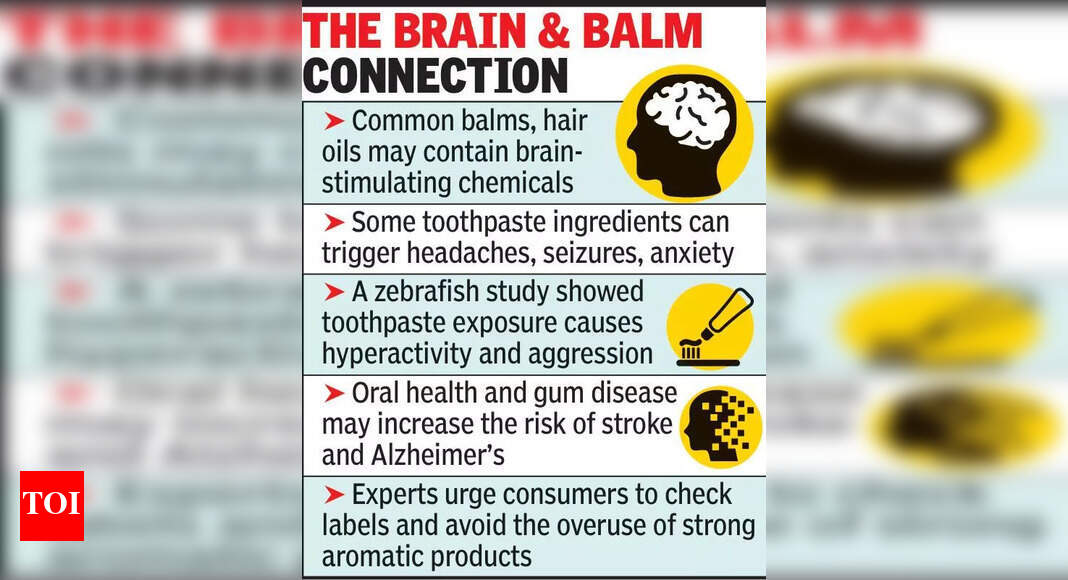Nagpur: In a shocking link between everyday hygiene products and neurological health, doctors and neuroscientists raised fresh concerns about ingredients commonly found in toothpaste, balms, and essential oil-based products that may silently impact the brain over time. Observations made during World Brain Week prompted researchers to highlight the potential neurotoxic effects of substances such as camphor, menthol, and eucalyptus — common components found in daily-use products. Experts suggest checking labels and avoiding the overuse of strong aromatic products.“Many of these ingredients can cross the blood–brain barrier via the buccal mucosa, bypassing liver metabolism,” said Dr Thomas Mathew, vice dean at St John’s Medical College, Bengaluru. “Repeated exposure, especially every 24 to 48 hours, can lead to a phenomenon called chemical kindling, where brain neurons become hyperexcitable, possibly triggering seizures, migraines, or other neuropsychiatric disorders,” Mathew said.Patients with unexplained headaches, seizures, anxiety, and even depression showed improvement simply by switching their toothpaste or stopping the use of certain balms, revealed Padma Shri Dr Chandrashekhar Meshram, trustee of the World Federation of Neurology. “These are not allergic reactions but neurostimulation effects. We’ve seen cluster headaches and migraines vanish within days of stopping using particular brands,” he added.A landmark case series published recently in The International Journal of Head and Face Pain also documented cluster headaches linked to toothpaste use, which resolved upon discontinuation of a particular brand. Experimental studies in zebrafish showed that even brief exposure to toothpaste triggered aggression, anxiety, and hyperactivity, suggesting potential impact on the brain.“The concern is not that these products affect everyone, but that they could be contributing to unexplained neurological symptoms in susceptible individuals,” said Dr Meshram. “We need collaborative research and funding to explore safe alternatives like water or saline-based oral hygiene products.”The spotlight also fell on oral health as a window to brain health. New studies linked gum disease and poor dental hygiene with higher risks of Alzheimer’s, Parkinson’s, and even stroke. “Regular flossing was associated with up to 22% reduction in ischemic stroke risk,” noted Dr S Sen, a researcher from the US.As evidence grows, neurologists are urging both the public and policymakers to consider the hidden neuro-health impacts of seemingly benign daily products, and to explore safer, inert alternatives. THE BRAIN & BALM CONNECTIONCommon balms and hair oils may contain brain-stimulating chemicals Some toothpaste ingredients can trigger headaches, seizures, and anxietyA zebrafish study showed toothpaste exposure causes hyperactivity and aggressionOral health and gum disease may increase the risk of stroke and Alzheimer’sExperts urge consumers to check labels and avoid the overuse of strong aromatic products
